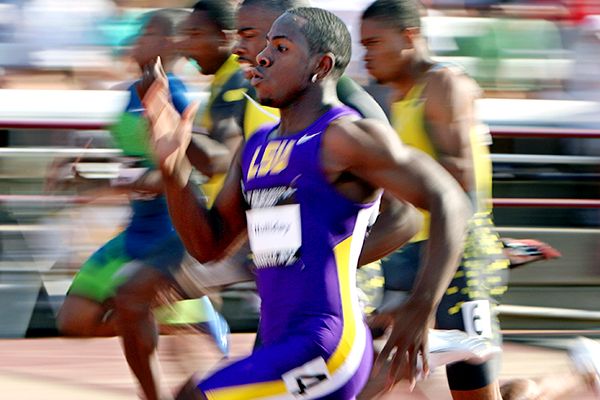Trindon Holliday has chosen to be the guinea pig of this year’s off-season, becoming the first 2010 drafted player to sign, signing a four-year, $2.713 million contract with the Houston Texans. In the NFL, rookie salaries for players drafted in the earlier rounds (especially first round) are typically highly competitive with essentially unlimited upside to earning potential.
As Holliday is the first to sign in 2010, an interesting aspect of this dilemma is when to sign. As an agent, do you advise your client to wait and potentially holdout or take a competitive offer based upon historical circumstances?
It’s difficult, as there are many indirect variables that could affect a given year’s draft scene. Signing early could also trigger an upward or downward swing for all picks above the 197th spot, benefiting or hurting many athletes drafted in early rounds. The NFL is in stark contrast to that of the NBA where picks are slotted, with contract values descending as picks fall down the draft board regardless of the agent’s negotiation skills or leverage.
As compared to last year, with draft slot 197 (in the 6th round) going to the Dallas Cowboys pick of Stephen Hodge, a linebacker out of TCU who received a $1.847 million contract for four years and only a $97,000 signing bonus, 2010 seems to be appreciating. Holliday is receiving $866,000 more than he would have last year – assuming all things equal.
His agent, Ian Greengross, made the right decision, because a contract would have to be signed at some point and waiting could be detrimental financially as others drafted well above pick 197 would eventually be signed, potentially hindering Holliday’s earning ability. On the same note, the longer the holdout, the less time the client has to prepare on the field with his new team for his inaugural season in the NFL.
If agents are to learn one thing from holding-out, it is the shining example of Michael Crabtree. As the tenth overall pick last year, he waited until October 7, 2009 to sign with the 49ers. His agent, Eugene Parker, took his position on the matter – disrupting a franchise and to some extent the integrity of the league. The money was there; it was waiting. Crabtree’s people were reckless – even contemplating the idea of having Crabtree sit out 2009 to be eligible for the 2010 NFL Draft.
Greengross was obviously aware of the circumstances. He knew the situation and advised well on the matter. As a lower pick, signing early just makes sense – it locks in the athlete’s contract, allows the athlete to begin involvement with the team, and benchmarks later picks against the contract and the respective signing bonus.
While it is ultimately a mutual decision between the client, his family, and the agent, one has to consider the fact that if an athlete waits, the risk only increases that a contract further down the line in the draft will be offered and signed – leaving the athlete, your client, and the athlete’s family in an unfortunate situation.

6 replies on “The Deal is Done – Trindon Holliday Signs Contract”
It seems like you have nothing but positives when you talk about signing an early contract. But if that’s true, then why do most players and their agents still wait until later?
Greed.
Haha I love reading Wade’s opinions. I don’t think it’s greed. It’s more about making sure that you do not undervalue your client. It is a tremendous risk to be the first player to sign. That said, it looks like Greengross got a great deal for his client. If he hadn’t, every agent would use it against him in the future, severely limiting his ability to recruit future clients.
Received this in an email from a reader:
“Truth is Holliday’s Signing Bonus this year was LESS than Hodge, not vice versa! He got “only” $96,600.
The contracts are “identical”: minimum salaries for 4 years, with a 4th year escalator that may or may not happen. Hodge has the same escalator, which was excluded from his reported contract as compared to the one reported for Holliday. I am guessing this comes from his typical “puffing” by the agent (Greengross) to distort the truth. “
You say Crabtree’s group was reckless, but he got paid.
I’d have to agree with Darren. It seems to me that the majority of agents that hold their players out want to make sure that their client has received a fair deal. The reasoning for this is most likely to keep the client under contract with the agent. If the player realizes that his agent brokered a sub-par deal, he may fire him. It’s about job security.